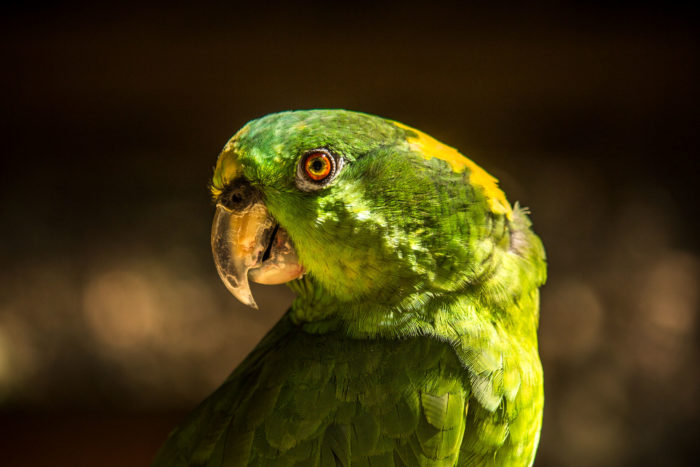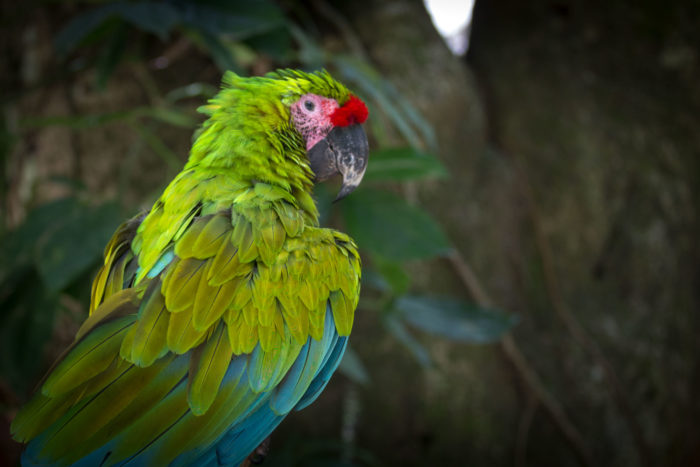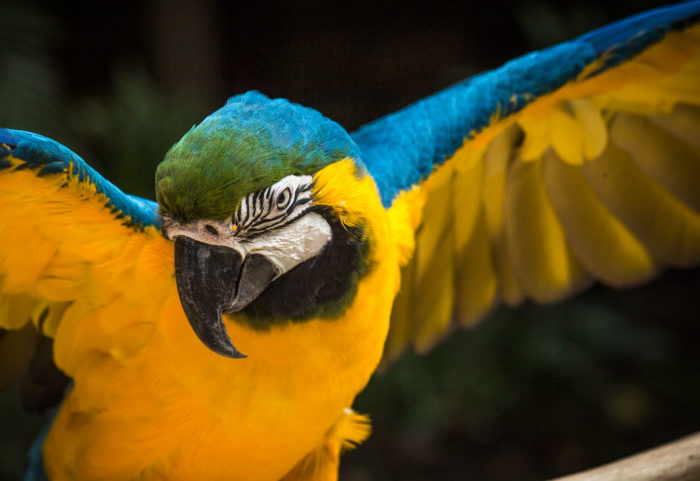Our birds
Many of our birds have been rescued from the illegal bird trade or donated by individuals concerned for their condition or unable to care for them long-term. Many people acquire a tropical bird as part of a tropical lifestyle, without realizing that parrots may live for 50 to 60 years in captivity and the larger macaws may surpass 100. When their owners come to understand how much attention these intelligent creatures need and just how long the relationship may last, we often have another donation. We are also entrusted regularly with the care for birds seized in confiscations
These birds have a very moving and eventful life story that we know about and that we’d love to tell you about. For starters we are happy to present you with a few of our ambassadors. Because of their condition, age, time spent in captivity or a combination of those factors, these birds will never be able to survive in the wild again. You are very likely to meet them up close and personal when you come visit our park.
Looking for a more comprehensive overview of the species that we have as guests? Check out our bird inventory.
Support us
Nursing birds back to health after their arrival in the park and preparing them for a possible release back into the wild requires lots of work.

Polly the Yellow-naped Amazon
Polly is probably our most well-known mascot. If you have already visited us, you may remember her friendly greetings as you arrived at our park. She is a rescued parrot who has been with our park’s founder since 1991. Polly is one of the oldest birds in the park. She happily sits at our entrance greeting visitors, sometimes with a song or laughter. She can also be moody and will occasionally bite. So watch out for your fingers!
Various subspecies of the yellow-headed amazon live in Central America. Polly is a rare Bay Islands subspecies, the yellow-naped amazon, typified by her white beak.
Buffy the Great Green Macaw
Together with Polly, Buffy is one of the oldest birds in the park. Due to her broken wing, she cannot fly anymore. But she loves to be in your pictures! She is really calm, but sometimes this great green macaw (also called Buffon’s macaw) has a bit of an attitude. Even when she is hungry, she won’t eat when someone is around.
The great green macaw is an endangered species which lives in the forests of the Mosquito coast.


Missy the Blue and Gold Macaw
Missy generally is a sweet bird, yet she will change her attitude depending on the person she’s with. But whenever you dance in front of her, she’ll wiggle her head. She hasn’t been trained to do this, she simply is a very intelligent bird. Flying isn’t a problem for her but landing is another thing.
The blue and gold macaw isn’t an endemic species in Honduras, their usual habitat is the northern part of South America. But every once in a while one ends up in our park.
